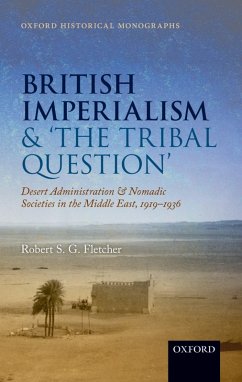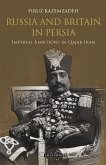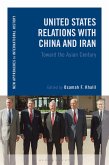British Imperialism and 'The Tribal Question ' reconstructs the history of Britain's presence in the deserts of the interwar Middle East, making the case for its significance to scholars of imperialism and of the region's past. It tells the story of what happened when the British Empire and Bedouin communities met on the desert frontiers between the Mediterranean Sea and the Persian Gulf. It traces the workings of the resulting practices of 'desert administration' from their origins in the wake of one World War to their eclipse after the next, as British officials, Bedouin shaykhs, and nationalist politicians jostled to influence desert affairs. Drawn to the commanding heights of political society in the region's towns and cities, historians have tended to afford frontier 'margins' merely marginal treatment. Instead, this volume combines the study of imperialism, nomads, and the desert itself to reveal the centrality of 'desert administration' to the working of Britain's empire, repositioning neglected frontier areas as nerve centres of imperial activity. British Imperialism and 'The Tribal Question ' leads the shift in historians' attentions from the familiar, urban seats of power to the desert 'hinterlands' that have long been obscured.
Dieser Download kann aus rechtlichen Gründen nur mit Rechnungsadresse in A, B, BG, CY, CZ, D, DK, EW, E, FIN, F, GR, HR, H, IRL, I, LT, L, LR, M, NL, PL, P, R, S, SLO, SK ausgeliefert werden.









